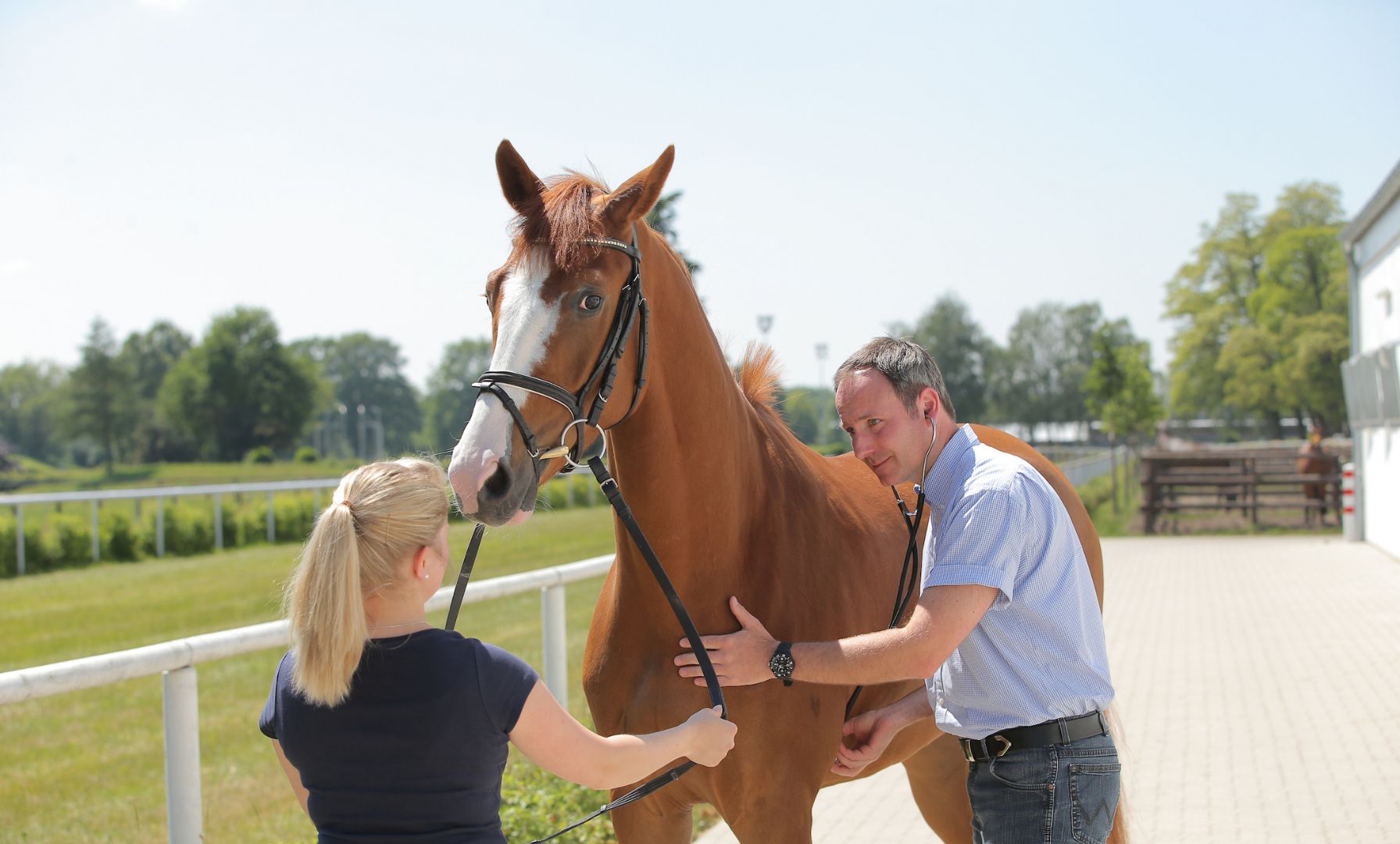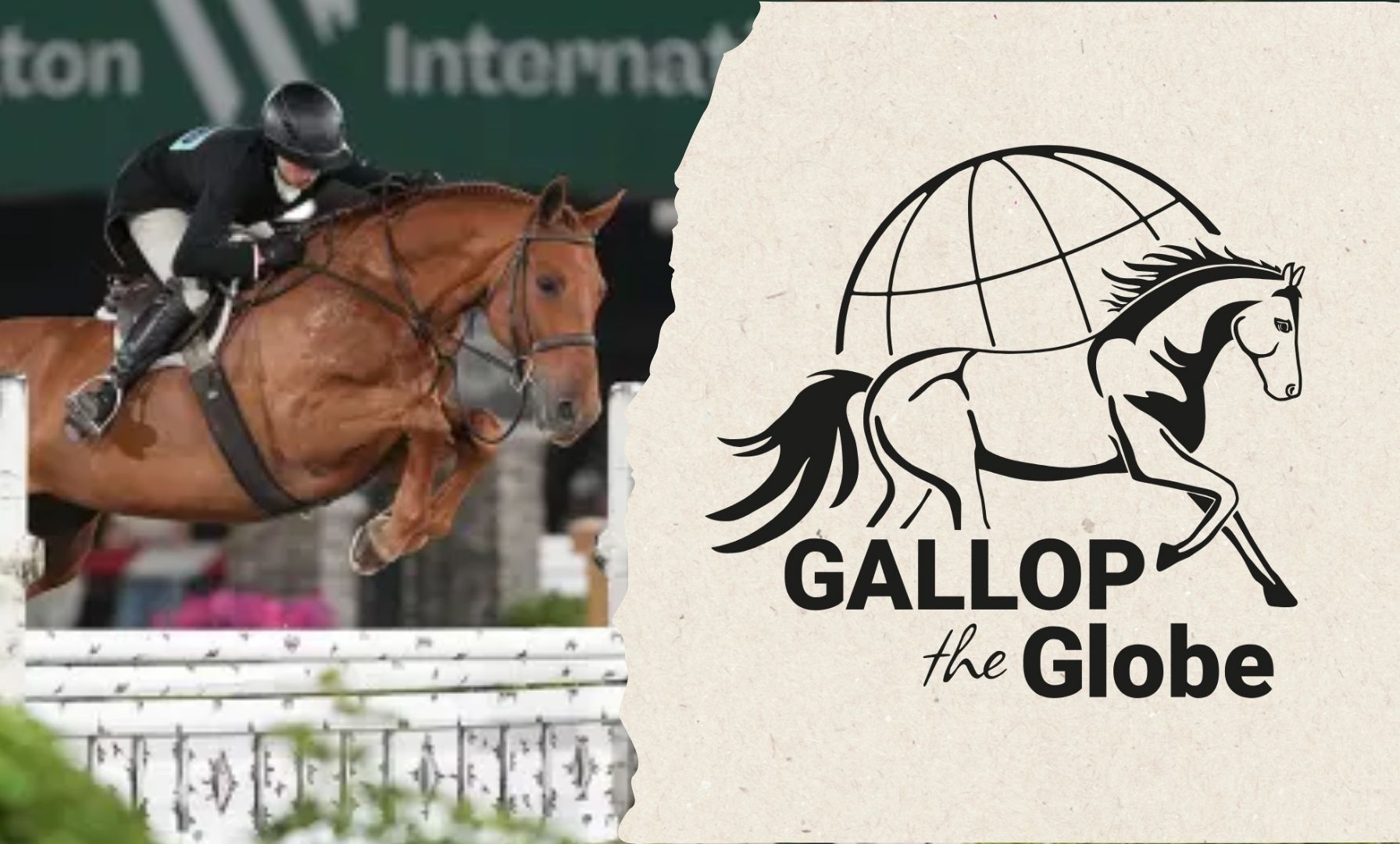Understanding Equine Herpesvirus (EHV)
What Horse Owners Need to Know
November 21, 2025 at 2:24 PMBy b.wehner

Equine herpesvirus (EHV), commonly referred to as equine rhinopneumonitis, is a group of highly contagious viruses that affect horses worldwide. Of the nine identified strains, EHV-1, EHV-3, and EHV-4 present the greatest concern for horses in the United States. While these viruses can cause serious illness in horses, they do not pose a risk to people.
EHV Strains and Their Impact
EHV-1 is the most significant strain, known for causing upper respiratory disease and abortions or stillbirths in pregnant mares. In some cases, it can develop into equine herpes myeloencephalopathy (EHM), a severe and sometimes fatal neurological condition.
EHV-3 is linked to coital exanthema, a venereal disease affecting the reproductive tract.
EHV-4 primarily affects foals with respiratory illness and can occasionally cause abortion or neurological symptoms. Horses infected with EHV that do not progress to EHM typically recover without lasting complications.
Clinical Signs to Watch For
Clinical signs of EHV can vary widely. Some horses show no symptoms, while others may display:
• Fever
• Nasal discharge or coughing
• Depression or lethargy
• Difficulty urinating
• Loss of tail tone
• Stumbling or hind-limb weakness that may progress to all limbs
• In severe cases, an inability to rise
• Abortion in pregnant mares
How EHV Spreads
EHV-1 and EHV-4 spread easily through nose-to-nose contact, contaminated equipment such as buckets, tack, and grooming tools, and respiratory secretions in shared spaces like stalls or barns. Aborted fetuses and placental tissues can also contain high viral loads.
EHV-3 spreads through breeding or contaminated breeding equipment.
Prevention and Biosecurity
Prevention relies heavily on diligent management. Vaccination is recommended to reduce the severity of respiratory illness and lower the risk of abortion, especially in breeding programs. While current vaccines help reduce symptoms and viral shedding, they are not effective against the neurologic form, EHM.
New or returning horses should be isolated for at least 21 days and monitored closely for signs of illness. Pregnant mares and mares with foals should be housed separately and kept away from recently traveled horses.
Daily hygiene is essential. Buckets, tack, grooming tools, mucking equipment, and shared items should be cleaned and disinfected regularly. Tack and equipment should never be shared at shows or boarding facilities without proper sanitation.
Treatment and Recovery
Most horses recover with supportive care, including anti-inflammatory medications and IV fluids when needed. Severe neurological cases may require hospitalization and advanced veterinary treatment.
Source
Information provided by the U.S. Department of Agriculture.
Photo by Stefan Lafrentz
Related Articles
Gallop the Globe: Winter Equestrian Festival in Wellington
Welcome to Wellington, Florida — the undisputed winter equestrian capital of the world. Every year, this sun-soaked destination transforms into a dazzling hub where elite riders, world-class horses, and passionate fans converge for a season of unparalleled competition.
Other15 hours ago
Live This Week: Top Winter Competition Across the Country
The winter competition season is in full swing, with premier hunter, jumper, equitation, and dressage events taking place nationwide. Fans can follow all the action live and on demand via ClipMyHorse.TV and USEF Network powered by ClipMyHorse.TV.
OtherJanuary 20, 2026
Latest News
Britain's Susan Pape on Harmony’s Giulilanta Win Wellington CDI5* Grand Prix
Britain's Susan Pape rode Harmony’s Giulilanta to a personal best score to edge past USA Olympic partnership of Marcus Orlob on Jane to win Wellington CDI5* Grand Prix.Susan and the 15-year-old Dutch-bred mare owned by Susan and Harmony Sporthorses of Colorado scored 73.630% for the pair’s first 5* victory. It came in the rider’s 11th year competing on Wellington’s winter circuit.
Dressage3 hours agoBertram Allen Captures the CSI4* $116,100 Adequan WEF Challenge Round
Bertram Allen of Ireland rode the 14-year-old Oldenburg gelding Eddy Blue to victory in the CSI4* $116,100 Adequan WEF Challenge Round on Thursday.The USA's Ansgar Holtgers Jr and Pixel-K van't Kattenheye, an 11-year-old Belgian Warmblood gelding, finished second at the Winter Equestrian Festival (WEF) in Wellington, Florida.
Jumping4 hours agoLucas Porter Tops the Leaderboard in the CSI2* $6,000 Speed Class at WEF
American Lucas Porter and the 14-year-old Oldenburg mare Vigakata won the CSI2* $6,000 Florida Coast Equipment class during week three at the Winter Equestrian Festival (WEF) in Wellington, Florida.Zoe Hank Conter of Belgium and Melodie-K van 'T Kattenheye, a 14-year-old Belgian Warmblood mare, finished second in the 1.45 meter class.Venezuelan Alejandro Karolyi and Tempual LS came in third.
Jumping5 hours ago